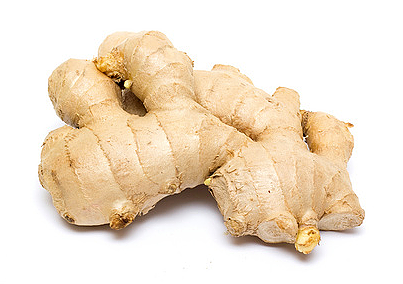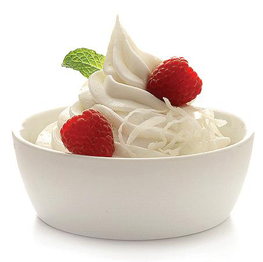Popular Articles
- Fibromyalgia | Best Vitamins, Herbs, and Supplements
- Anatrin Supplement Facts
- Herbal Treatment of Fibromyalgia
- Medications That May Interact with Anatrin
- Is Paleo the Best Diet for Fibromyalgia?
- 39 Signs and Symptoms of Fibromyalgia
- Omega-3 for Fibromyalgia
- 5 HTP and Fibromyalgia
- Fibromyalgia- Foods to Avoid
- Childhood Abuse Is Linked to Fibromyalgia
- More Articles ...
 Natural Treatments for FibromyalgiaIn This Article
There is a multitude of alternative treatments for fibromyalgia pain and other symptoms. Natural treatments for fibromyalgia include diet, supplements, herbs, exercise, massage, and more.
Alternatives for fibromyalgia and especially alternative treatments for fibromyalgia pain compose such a long list of options that the person who suffers from fibromyalgia can become stressed and overwhelmed just by reading them. Fibromyalgia is such a complex disease that it is considered a syndrome. With over thirty- nine debilitating symptoms possible in the fibromyalgia picture, treating each symptom with a pharmaceutical drug ends up with a chemical cocktail, drained finances, and no true results. Understandably, affected people would look for natural treatments for fibromyalgia. In the medical community, doctors approach healing by addressing symptoms and hopefully making them go away.
Alternative healers seek to find the underlying cause of fibromyalgia and address the mental, emotional, spiritual, and environmental picture as well as the physical symptoms. The approach is entirely different than that of a medical doctor. The problem often encountered in the alternative healthcare community is that some of the treatments for fibromyalgia do not work. Sometimes these treatments work for a little while but stop working, which indicates that the placebo effect may be coming into play. Fortunately, medical science is beginning to respect the natural treatments for fibromyalgia that do work. These researchers are publishing what they may consider being “groundbreaking” work for “complementary” treatments that the alternative health community has known about for years. Everyone with fibromyalgia would love to be able to take a simple prescription medication and have their symptoms be gone. Medical doctors will be the first to tell their fibromyalgia patients that there is not one. Respected natural health care professionals and herbalists will readily admit that there is no one alternative treatment that will work for every case of fibromyalgia, either. Fortunately, there is clinical proof that some treatments for fibromyalgia do work, and there is plenty of anecdotal evidence that some other alternative treatments for fibromyalgia work, as well. The two premises for natural and alternative healingMost natural or alternative health practitioners operate under two premises. First, no living organism can sustain itself if it cannot assimilate the food it consumes or be able to eliminate it properly. The second premise is that the human body has been either designed or has evolved to heal itself without outside help. If the human body is in a state of homeostasis, meaning that it is balanced, with all organs functioning properly, it is getting the right foods, it is well exercised, it is getting enough rest, and there is little stress, it will thrive. If anything is out of balance, the disease presents itself. Homeostasis is what laypeople call “being healthy.” Alternative health practitioners seek to put the body back in balance to achieve homeostasis. Alternative treatment for fibromyalgia #1: DietThe very first thing to look at when considering alternative treatments for fibromyalgia is the diet. Although there is any number of “diets” a person with fibromyalgia could try, most alternative health practitioners would recommend starting the practice of “clean’ eating as a foundation. Clean eating refers to eliminating all processed and junk foods as well as all fast foods. Processed foods include everything that has somehow been “processed,” whether by adding refined white flour or sugar, artificial flavorings or preservatives, or any other chemical. “Clean” foods are simply foods with only one ingredient, such as apples, broccoli, brown rice, and chicken. Many people with fibromyalgia have trouble with their digestive system. Food allergies are a common problem, especially with dairy products and grains. If a person with fibromyalgia is still experiencing symptoms on a “clean” diet, a common next step is to adopt an ancestral diet, such as the Paleo diet. The Paleo diet eliminates almost all grains, especially wheat and corn. Strict Paleo diets also eliminate all dairy products, except butter. Lean protein sources, healthy fats, and copious amounts of both cooked and fresh, raw vegetables and fruits are allowed. The next diet to experiment with, if symptoms are persisting, is becoming a vegan or raw vegan. If a person becomes a vegan, care must be taken to get enough protein in the daily diet. Protein is easily available from plant sources. The debate over protein is moreover the amount of protein that is required daily. Raw vegans do not cook their food. They create beautiful and tasty dishes completely from raw, fresh vegetables, fruits, seeds, and nuts. Some fibromyalgia patients have issues with foods in the nightshade group. These foods are tomatoes, white potatoes, eggplants, and peppers.
The great alternative healers of the twentieth century, such as Bernard Jensen, Dr. Max Gerson, and Dr. John R. Christopher used juice fasting as a way to get their most critically ill patients and clients on their way to health as fast as possible. Today's alternative health professionals use juicing as a healing therapy as well. With all of the above diet options, drinking pure reverse osmosis or distilled water is a must for the fibromyalgia patient, since fluoride poisoning and fibromyalgia share similar symptoms. Alternative treatment for fibromyalgia #2: supplementsNatural healing protocols do not allow supplements except for herbs and completely natural substances such as apple cider vinegar, bee pollen, and herbs. Many alternative health practitioners do allow a variety of supplements, and some supplements have clinical support for their use. Vitamins A, C, and EIn 2009, Cell Biochemistry and Function demonstrated that fibromyalgia patients are significantly deficient in Vitamins A and E. The blood in fibromyalgia patients contains larger than usual amounts of free radicals, which damage cells in a process known as oxidative stress. Supplying fat-soluble vitamins such as vitamins A and E helped to reduce cell damage in fibromyalgia patients. In 2010, scientists at Suleyman Demirel University in Turkey discovered that combining Vitamins C and E with exercise reduced stress in fibromyalgia patients better than exercise alone. High Dose Vitamin DThree different medical studies performed in 2011 showed that fibromyalgia patients are severely deficient in Vitamin D. The studies showed that women with fibromyalgia did not see improvements in symptoms until they were on high doses of Vitamin D. There are strong links between muscle pain and Vitamin D deficiency. Only 15% of fibromyalgia patients have been found to have enough Vitamin D stores in their bloodstream. Both the medical community and the Vitamin D Council are now recommending that fibromyalgia patients take 7000 IU Vitamin D daily for eight weeks for pain. This can be achieved with 5000 IU Vitamin D3 capsules and two teaspoons of cod liver oil, which proved 1000 IU Vitamin D per teaspoon. MagnesiumMagnesium is a crucial mineral for the body, one which can easily be lost from a combination of chronic stress and an unbalanced diet or otter physical reasons. A magnesium deficiency can cause sleep problems, muscle cramps, twitches, spasms, and restless leg syndrome. Magnesium also stabilizes ATP, which is responsible for transporting energy to the cells for metabolism. Without enough magnesium, the body feels fatigued. Low ATP levels cause brain cognitive dysfunction, which fibromyalgia patients often refer to as “brain fog” or “fibro fog.” According to the University of Maryland Medical Center, a magnesium deficiency can also trigger migraines, anxiety, mood swings, heart palpitations, nausea, and confusion- all possible symptoms of fibromyalgia. If tolerated, up to 1000mg magnesium per day may help relieve the symptoms of fibromyalgia. Magnesium does have a laxative effect on the body. Too much magnesium causes diarrhea. Fibromyalgia patients may want to start with just a pinch of Epsom salt or some other source of magnesium and work up to bowel tolerance. Taking small amounts of magnesium throughout the day may be easier to assimilate. CalciumCalcium and magnesium work together in the body. While many calcium- magnesium supplements have a 2:1 ratio, some nutritionists and medical professionals are thinking that this is too much calcium. This is because most people in the United States get plenty of calcium in their diet. Taking an additional calcium supplement may be driving the ratio of calcium to magnesium to 4:1 or 5:1. Magnesium balances calcium, acting as a buffer. Without sufficient magnesium, the body deposits extra calcium almost anywhere in the body. Extra calcium causes joint stiffness, bone spurs, and even kidney stones. Too much calcium has been shown to cause osteoporosis rather than treat it. SodiumFibromyalgia patients might be low in sodium. With so much media attention about low salt diets for high blood pressure, many people believe everyone should restrict their sodium intake. However, when scientists studied the effects of salt- loading for diabetes, they discovered that sodium lowered the norepinephrine (noradrenaline) levels in the sympathetic nervous system. In fibromyalgia, the body produces too much norepinephrine, which triggers extreme pain signals in the brain. In 2011, researchers at the University of Texas Health Science Center in San Antonio were able to demonstrate that sodium oxybate reduced pain, sleep disturbances, and fatigue in patients with fibromyalgia. Probiotics
They help the gastrointestinal system digest and assimilate food nutrition, help correct digestive issues such as irritable bowel syndrome, and protect the body from pathogenic microbes which can cause diseases and infections. They also help ward off toxins found in the environment. L- carnitineRheumatologists at the University of Verona, Italy discovered that L- carnitine improved the mood and lessened muscular pain in fibromyalgia patients during a clinical study conducted in 2007. The study was published in the medical journal Clinical Experimental Rheumatology. 5- HTP5- HTP (5- Hydroxytryptophan) may be able to help people with fibromyalgia sleep better and deeper, as well as reduce anxiety and depression, according to the Journal of International Medical Research.
|
| Proven Herbs for Fibromyalgia |
|
St. John’s Wort for lifting depression and reducing inflammation |
| Ginkgo Biloba for a better quality of life |
| Chlorella and bromelain to reduce pain |
| Skullcap, valerian, and passionflower to calm nerves and induce sleep |
| Green tea (Camellia Sinensis) to boost the immune system |
| Cat’s Claw to boost the immune system and reduce inflammation |
Rhodiola to boost the immune system and reduce stress. |
| Cayenne to stimulate blood circulation to painful and inflamed areas of the body |
Many other herbs have been documented by herbalists and alternative healthcare providers to improve the health of fibromyalgia patients, but have no clinical or medical evidence that they are effective.
This does not mean that the herbs do not work. It simply means that no clinical study has been conducted or published to document the effectiveness of a particular herb, in this case, for fibromyalgia.
One of the foundational elements of alternative treatments for fibromyalgia or any other disease protocol is detoxification. Old toxic waste must be removed from the body, as well as the mind, spirit, and emotions.
This allows room for great nutrition and other positive habits to be established. Colon cleansing is basic to any alternative treatment protocol. Certain herbs are very effective for this.
Colon cleansing herbs
There are two parts to an effective herbal colon cleanse. One part stimulates the bowels to move in a laxative action, and the second part cleans or sweeps toxic residue out of the bowel pockets or diverticula of the large intestines.
Some people with fibromyalgia have problems with constipation, while others have issues with an overactive, or “hot” colon.
If constipation is an issue, the person would use the laxative herb formula for a couple of weeks before starting on the second formula.
For those with an overactive colon, the two herbal formulas are taken at the same time to slow down the bowels and help form a solid stool.
Together, the two parts of a good colon cleanse regulate the bowels, remove residual toxins, and heal and strengthen the walls of the large intestine.
| Laxative Herbs That Stimulate the Colon |
| Aloe vera |
| Senna leaf |
| Cascara sagrada |
| Barberry Root |
| Ginger root |
| Garlic |
| Cayenne pepper |
These herbs are usually taken orally in capsule form.
| Herbs That Draw Toxins Out of the Colon |
| Flax seeds |
| Apple pectin |
| Bentonite clay |
| Psyllium husks |
| Slippery elm |
| Marshmallow root |
| Fennel seeds |
| Activated charcoal |
These herbs are usually consumed as a liquid shake several times a day.
 Herbs to cleanse the liver
Herbs to cleanse the liver
Many respected herbalists believe that fibromyalgia involves a toxic buildup in the liver, which must be cleansed to eliminate congestion.
One of the functions of the liver is to turn nutrition into energy. If both the gastrointestinal tract and the liver are compromised, it may be easy to see how a person with fibromyalgia would have little energy.
| Herbs for Liver and Gallbladder Support |
| Milk thistle |
| Dandelion |
| Oregon grape root |
| Gentian Root |
| Chaparral |
| Black walnut hull, garlic, and wormwood (to kill parasites such as liver flukes) |
| Ginger root |
| Fennel seeds |
Herbs to cleanse the kidneys
A kidney and bladder support tea can be made by blending the following herbs:
| Herbs to Support the Kidneys and Bladder |
| Uva ursi |
| Parsley |
| Horsetail |
| Juniper berries |
| Cornsilk |
| Goldenrod |
| Herbs to Support Kidney and Bladder Health |
| Hydrangea root |
| Gravel root |
| Marshmallow root |
| Orange peel |
| Peppermint leaves |
Kelp for iodine
Several alternative health care providers suggest kelp as a source of iodine for fibromyalgia. This is because iodine deficiency causes intellectual disabilities, thyroid malfunction, and hormone imbalances, which are all symptoms of fibromyalgia.
Echinacea for immune support
Medical studies abound on the benefits of Echinacea. Even famous medical journals such as Lancet give credence to echinacea’s immune-building properties. Although not specific to fibromyalgia, Echinacea specifically targets respiratory infections.
Herbs for fibromyalgia symptoms
 Medical scientists are still puzzling over fibromyalgia syndrome in 2012. Recently, Harvard Medical School neurologists were able to see that in the brains of people with fibromyalgia, the central and sympathetic nervous systems misfire.
Medical scientists are still puzzling over fibromyalgia syndrome in 2012. Recently, Harvard Medical School neurologists were able to see that in the brains of people with fibromyalgia, the central and sympathetic nervous systems misfire.
The pain signals tell the brain that pain levels are much higher than they are in reality.
Whereas healthy people may feel a normal headache with a pain level of two out of a possible ten, people with fibromyalgia may feel the same headache at a pain level of six out of ten.
Fibromyalgia patients can suffer from over thirty- nine different symptoms.
Pain and tenderness all over the body is the most common symptom, but fatigue, anxiety, mood swings, migraines, colon issues, vision problems, depression, and many others paint the fibromyalgia picture as well.
Herbs can help with these symptoms, but no evidence exists in the medical community that these herbs work specifically for fibromyalgia.
| Herbs for Brain Health |
| Gingko Biloba |
| Rosemary |
| Kola nut |
| Cayenne |
| Herbs for Calming Nerves and Aiding Sleep |
| Valerian |
| Lobelia |
| Skullcap |
| Blue cohosh |
| Black cohosh |
| Passionflower |
| Hops |
| Wild yam |
Alternative treatment for fibromyalgia #4: coffee enemas
Most people do not know that coffee is a painkiller. It is also a mild colon stimulant. When coffee is used in an enema, it helps to cleanse and support the liver.
Although there has been no medical research performed with coffee enemas and fibromyalgia patients, there is anecdotal evidence to support its use.
Back in the early twentieth century, Dr. Max Gerson, MD, became famous for using coffee enemas as an alternative pain reliever for German soldiers when supply lines failed during WWI.
When Dr. Gerson defected to the United States and began practicing medicine as an oncologist, he used coffee enemas as a safe pain reliever with his cancer patients.
He recommended a gold roast coffee that has a higher caffeine content than commercial coffee which is intended to be sipped.
Alternative treatment for fibromyalgia #5: Exercise
With the kind of pain fibromyalgia sufferers feels, exercise may be the last thing on their minds. However, exercise has been clinically proven to help relieve certain symptoms of fibromyalgia.
In particular, the following exercises seem to greatly benefit those with fibromyalgia:
| Exercises for Fibromyalgia |
| Cardiovascular exercises such as brisk walking |
| Yoga |
| Qi gong |
| Tai chi |
| Strength training, also known as weight training |
Alternative treatment for Fibromyalgia #6: Hydrotherapy
Hydrotherapy is an easy alternative treatment for fibromyalgia pain consisting of alternating hot and cold water in the shower.
It is simply standing in the shower for fifteen minutes, alternating one minute of very hot water with a minute of completely cold water for seven rotations. This drives the blood up to the skin’s surface and backs down deep into the body’s tissues like a pump.
This forces fresh oxygen and nutrients to every cell in the body, especially to the places on the body which are sick and hurting.
 Alternative treatment for fibromyalgia #7: acupuncture
Alternative treatment for fibromyalgia #7: acupuncture
Web MD.com states that more research is needed to see how effective acupuncture is for fibromyalgia but mentioned a small study showing that acupuncture did reduce pain and improve the quality of life in patients with fibromyalgia who had acupuncture therapy.
Acupuncture involves inserting needles into the skin to manipulate the release of endorphins into the body. Energy blocks are removed during the technique as well.
By changing the release of information being sent by cell neurotransmitters, the fibromyalgia patient’s pain tolerance is increased for several weeks.
Alternative treatment for fibromyalgia #8: chiropractic care
Chiropractic care works for fibromyalgia by improving pain tolerance and helping to increase the range of motion in the back and certain joints through spinal adjustments.
Chiropractors either gently press and stretch various areas of the body or conduct quick, high speed thrusts to help the bones align properly.
Alternative treatment for fibromyalgia #9: massage therapy
When most people think of “massage therapy,” they think of Swedish massage, which gently strokes and kneads the superficial layers of the muscles.
Oils are incorporated along with rubbing the muscles in the direction of the heart to increase circulation and remove tension in the muscles.
A more effective form of massage therapy is deep tissue massage. In deep tissue massage, massage therapists use pressure and kneading to reach the deepest layers of muscle tissue.
On occasion, deep tissue massage therapists will use their thumbs or elbows to push into the grain of the muscles to release tension.
Sources
Web MD. Com, “Fibromyalgia and Alternative treatments”
About. Com, “Herbs and Supplement for Fibromyalgia,” by Cathy Wong
Pubmed.gov, Clinical Cardiology. 1997 Mar;20(3):265-8. “Erythrocyte magnesium and prostaglandin dynamics in chronic sleep deprivation.” Tanabe K and Osada N, et al.





 Treatments for fibromyalgia include drugs for pain, drugs for fatigue, drugs for irritable bowel syndrome, and candida if they are present. Then there are drugs to counter the side effects of the drugs.
Treatments for fibromyalgia include drugs for pain, drugs for fatigue, drugs for irritable bowel syndrome, and candida if they are present. Then there are drugs to counter the side effects of the drugs. Perhaps the most extreme diet for the average person is juice fasting. However, juice fasting brings the fastest positive healing results.
Perhaps the most extreme diet for the average person is juice fasting. However, juice fasting brings the fastest positive healing results. Probiotics are the good bacteria found in yogurt, kimchi, sauerkraut, and the fizzy tea called kombucha.
Probiotics are the good bacteria found in yogurt, kimchi, sauerkraut, and the fizzy tea called kombucha.